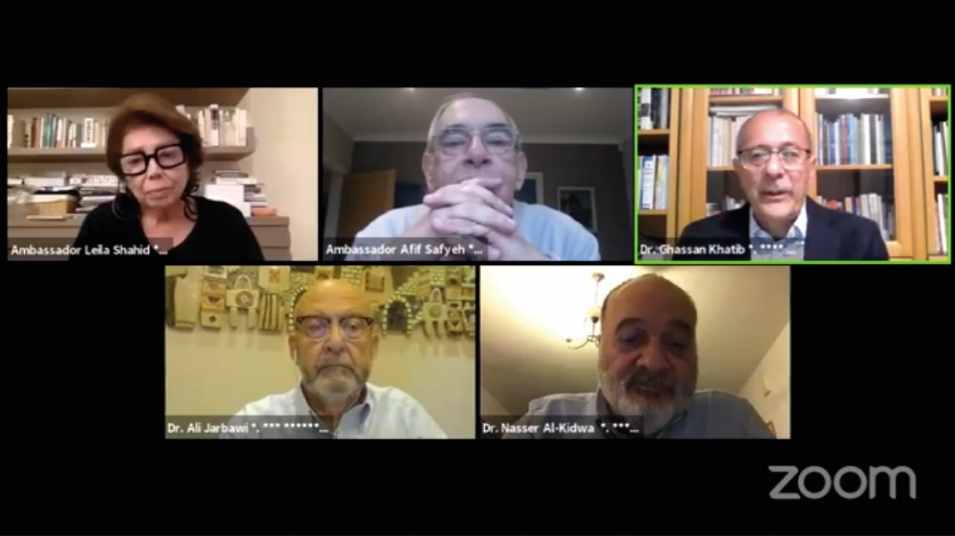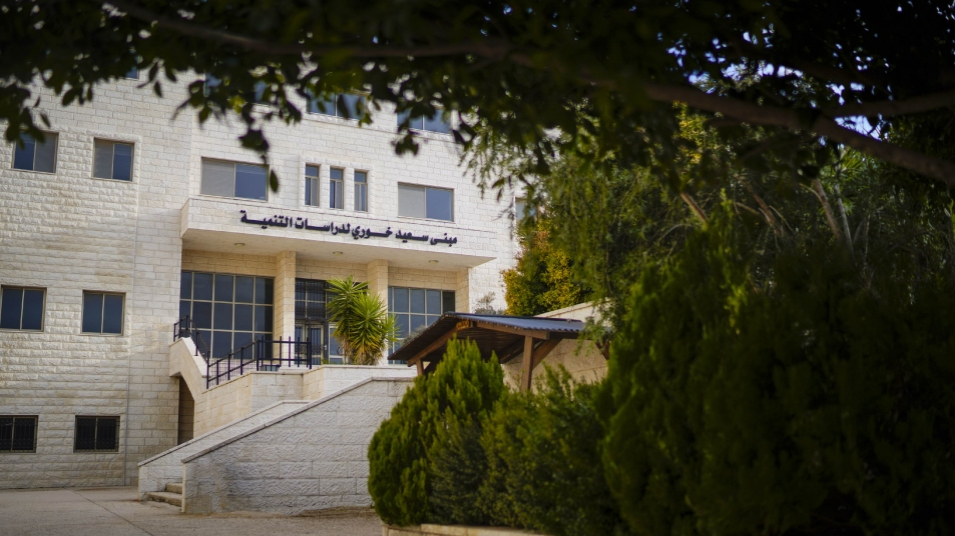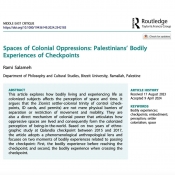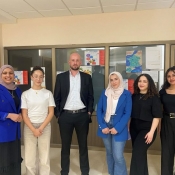Professors and political scientists discuss future U.S. foreign policy in Abu-Lughod international conference
Palestinian and international political scientists and experts explored the effects of the recent U.S. administration transition on international relations and world affairs in an international conference organized by Birzeit University’s Ibrahim Abu-Lughod Institute of International Studies on Monday, February 15, 2021.
The four-day conference is part of an annual series organized by the institute to shine a spotlight on regional and international events and political developments and their impact on the Palestinian struggle for independence.
In his welcoming remarks, Director of the Ibrahim Abu-Lughod Institute of International Studies Dr. Ali Jarbawi said that the conference specifically addresses the local and global ramifications of the recent U.S. presidential elections, which saw the Democratic candidate Joseph R. Biden become the country’s 46th president.
Jarbawi explained that the 2020 U.S. presidential elections are important due to the foreign policy changes that the new administration is expected to bring. The Trump administration, he added, broke with long-standing U.S. foreign policy in several areas and rocked relations with allies in both Europe and Asia. How, indeed whether, President Biden and the rest of his cabinet reverse these changes will set an important benchmark for the next four years of international relations.
Dr. Ghassan Khatib, an assistant professor in the Department of Philosophy and Cultural Studies and the conference’s coordinator at Birzeit University, noted that the Biden administration’s approach to the Middle East will be notable because it follows a period of monumental shifts in the region’s dynamics caused by Trump’s foreign policy directives.
The impact of Trump’s foreign policy has been particularly felt in Palestine, said Khatib, explaining that the previous administration’s support to the Israeli occupation, sustained pressure on the Gulf countries to normalize relations with it, and restricted financial and humanitarian aid to Palestinians meant a de-facto legitimization of settler-colonial policies in the occupied territories.
The conference comprised four sessions spread over four days. The first session, chaired by assistant professor of political science Dr. Murad Shaheen, discussed the regional and international impact of the changing U.S. foreign policy. The session featured discussions by Dr. George Abed, a researcher at the Institute of International Finance; Helena Cobban, an author and researcher in international relations; and Dr. Andreas Nick, a member of the German Bundestag.
The second session, chaired by Dr. Lourd Habash, the vice president for community affairs at Birzeit University, revolved around the possible directions that the new U.S. administration could take with regards to foreign policy in the Middle East. The session featured Dr. Marwan Al-Muasher, the vice president for studies at the Carnegie Endowment for International Peace; Dr. Paul Salem, president of the Middle East Institute; and Dr. Ali Fathollah-Nejad, a senior research fellow at the Afro-Middle East Centre.
Dr. Abderrahman Ibrahim, dean of the Faculty of Law and Public Administration at Birzeit University, chaired the third session, in which speakers explored how future U.S. foreign policy could affect Palestinian efforts towards independence. The speakers include Dr. Rashid Khalidi, the Edward Said Professor of Modern Arab Studies at Columbia University; Dr. Shafeeq Ghabra, a professor of political science at Kuwait University; and Dr. Mohamed Ghanem Alrumaihi, a professor of political sociology at Kuwait University.
The fourth and final session of the conference, chaired by Dr. Ghassan Khatib, revolved around the alignment between Palestinian politics and U.S. foreign policy changes. The session featured Dr. Nasser Al-Kidwa, a member of Fatah’s central committee; Leila Shahid, the Palestinian delegate to the EU; and Afif Safieh, the deputy commissioner for international relations at the Palestinian Liberation Organization.








